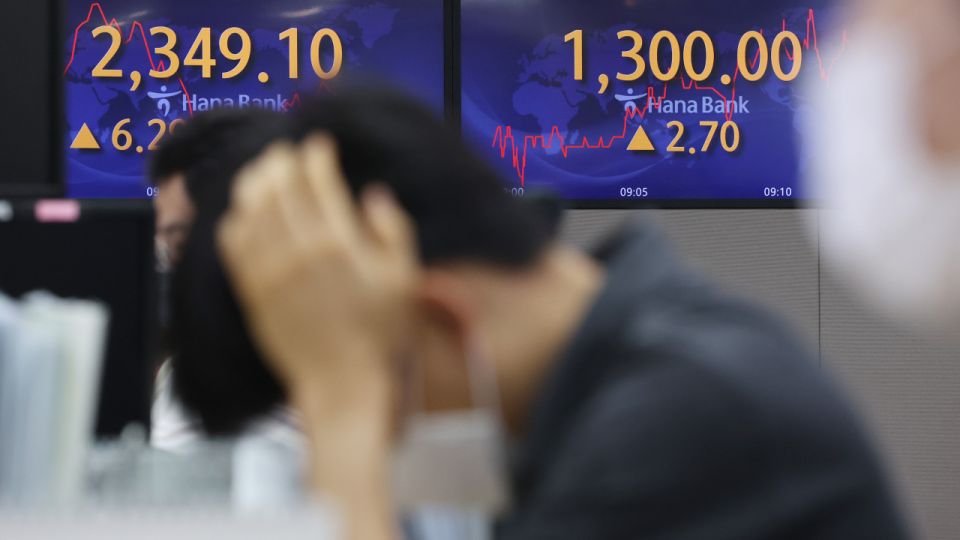June 24, 2022
SEOUL – South Korea’s financial authorities on Thursday warned of a “perfect storm” approaching the nation’s economy, while pledging to pump liquidity into financial institutions to cushion them from growing risks, if needed.
The concerns come as the US Federal Reserve’s aggressive rate hikes, a strong dollar trend, high inflation and ongoing global supply chain bottlenecks have been rattling the Korean market.
“Some experts compare the current economic state to the oil shock (in the 1970s) when the world suffered inflation and an economic downturn at the same time,” Financial Supervisory Service Gov. Lee Bok-hyun said in a meeting with top officials of economic think tanks in Seoul.
“This time we could face a more dangerous crisis with the global value chain more closely intertwined — it could lead to an unprecedented perfect storm,” he added.
To counter unexpected risks, Lee pledged to adopt various oversight measures for financial institutions, including regulations on the soundness ratio measurement.
In a move to better respond to unexpected risks, Lee vowed to strengthen the oversight of financial institutions “by actively employing various means, including soundness ratio measurement,” he said.
Bolstering the local financial firms’ foreign exchange liquidity management will be another key task for the financial authorities here, Lee noted, while pledging to strengthen any related monitoring. The rate hikes and falling value of the Korean won could lead to a stalemate in the money and the corporate bond markets, he added.
Echoing Lee’s concerns, Financial Services Commission Vice Chairperson Kim So-young said Thursday they will pursue ways to preemptively funnel liquidity into financial institutions if needed. They vowed to change the focus of the Korea Deposit Insurance Corp. — a state-run organization that helps insolvent financial firms through loan extensions and fund deposits — from cleaning up after the indebted firms, preemptively preventing their demise.
“We will take a leaf out of the preemptive funding systems used in the US and the European Union and pursue the matter,” Kim said at a meeting of the financial risk countermeasure task force of FSC, FSS and KDIC officials.
South Korea’s financial market and its borrowing rate has been affected by the waves of the US Fed’s decision to hike its interest rate by 0.75 percentage point in the latest move to tighten monetary policy and tame its sharpest inflation since 1981. It marked the sharpest rate hike since November 1994.
The Bank of Korea’s benchmark interest rate currently stands at 1.75 percent, a result of five rate hikes since August last year, when the rate had been at a record-low 0.5 percent for more than a year.
The Kospi, Korea’s key stock index, plunged below the 2,400-point threshold for the first time in 19 months last week, and was trading at 2,327.73 around 2 p.m. on Thursday, 0.63 percent lower from the previous closing.
The won-dollar exchange rate breached the 1,300-won level for the first time since July 14, 2009 to 1,302.9 won at one point Wednesday, spurring concerns among onlookers of the Korean currency’s sharply falling value.


